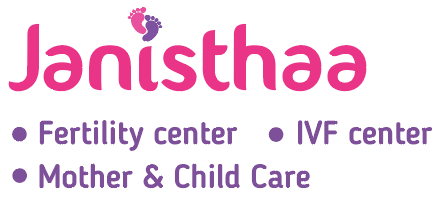IVF is an assisted reproductive technology gaining widespread attention as a reliable option for starting a family. If you are considering IVF treatment in Bangalore, you probably have many questions swarming in your mind. How long does IVF take? How long is each procedure? How long would we have to wait to see positive results? If you are asking yourself these questions, we have the answers for you. Read on to get an overview of the timeline of an IVF procedure.
What is IVF?
IVF is an assisted reproductive technique, where, simply put, an egg and a sperm are allowed to fertilise under clinical conditions to maximise the chances, and it is placed into the womb under careful supervision to maximise chances of implantation. While this makes it sound simple, there are a lot of different procedures that are carried out to make this whole process effective.
As the best infertility hospital in Bangalore, our experts discuss the different procedures in IVF and the average time taken during each.
Breaking Down the IVF Timeline
Each individual has a different timeline for IVF treatment in Bangalore. No cases are the same, and each requires a custom approach. However, on average, the general time taken for the in vitro fertilisation process is 2-6 weeks.
The first 1-3 weeks include hormone regulation using oral birth control pills and synchronising the menstrual period. After this, a treatment plan is charted with a detailed calendar for the various medications and procedures.
Let’s walk you through a typical IVF journey.
Recommended, How is Exercise Helpful for the Success of IVF Treatment?
Consultation with a specialist
This is where your doctor will conduct a full checkup to identify fertility issues and make a treatment plan. You will be informed of the various procedures of the treatment.
Hormone production suppression
This is where you are asked to take the birth control pill to control your ovulation. This prevents spontaneous ovulation before the doctors have a chance to collect the egg.
Egg supply stimulation
This phase lasts up to 10-12 days. This is where the woman is required to take daily injections of FSH or follicle-stimulating hormone. This hormone will increase the number of eggs available for fertilisation, thus increasing the chances of fertilisation and a good-quality embryo.
There are two methods of doing this:
Agonist protocol:
Two weeks before stimulation, injections of FSH are given, preventing the natural LH surge. These injections continue during the period that the FDH-containing products are taken.
Antagonist protocol:
This includes daily injections of FSH product, along with extra injections after 5-6 days to suppress the LH hormone. This is the chosen method for women with PCOS or a hyper response to FSH stimulation.
Egg collection
34-38 hours before eggs are retrieved, another hormone injection is administered. This brings about the final maturation of the follicles, mimicking the natural LH surge in a normal cycle. Egg retrieval is scheduled when the eggs have reached the optimal size and hormones have reached acceptable levels. The egg retrieval procedure requires critical timing and is done transvaginally under sedation.
Fertilisation and embryo development
The eggs are collected and allowed to fertilise with the partner/donor sperm in a petri dish. This takes about 16-20 hours. If it does not occur naturally, a single sperm is manually injected into the eggs in an intracytoplasmic sperm injection or ICSI.
The fertilised egg then develops to become an embryo. The embryo is then transferred to the uterus within 3-6 days.
Progesterone supplements
Progesterone supplements are given to the patient to help support the embryo implantation that has been transferred. Progesterone reduces the risk of the embryo being rejected by the uterus. It also supports its growth in the early stages.
And now we wait
An hCG blood test or chorionic gonadotropin test reveals whether or not the pregnancy is successful. Once the implantation is successful, regular check-ups are done to ensure the embryo’s health. You might have to continue your progesterone supplements as per the doctor’s advice.
Successful IVF with Janisthaa
Waiting for a successful pregnancy can be excruciating for wanna-be parents. We suggest consulting the best infertility hospital in Bangalore for a smooth IVF journey. Our doctors support you throughout each step of the treatment. Get in touch with us at Janisthaa for a reliable IVF treatment in Bangalore. To know more about IVF treatment in Bangalore, book an appointment today!

